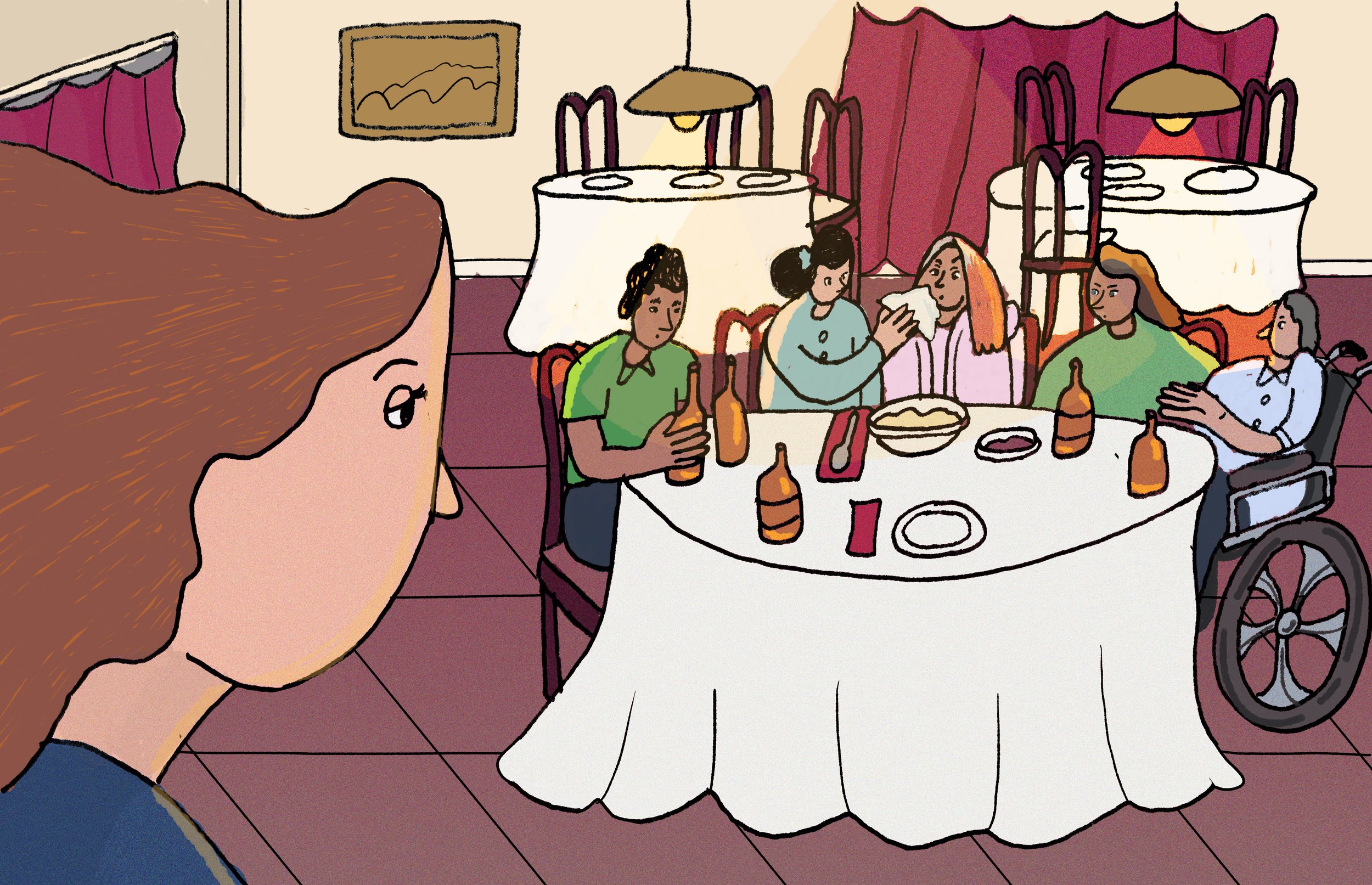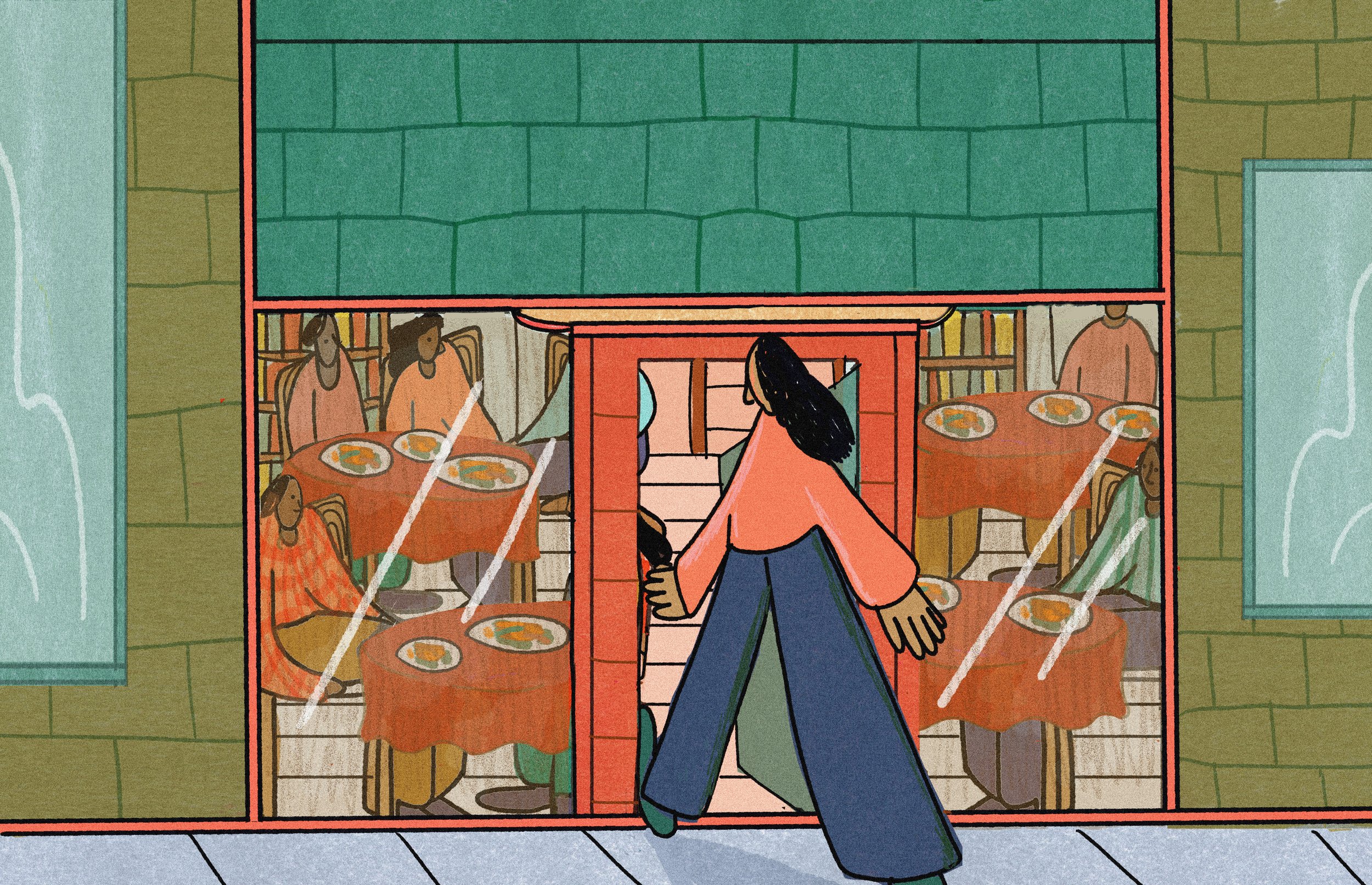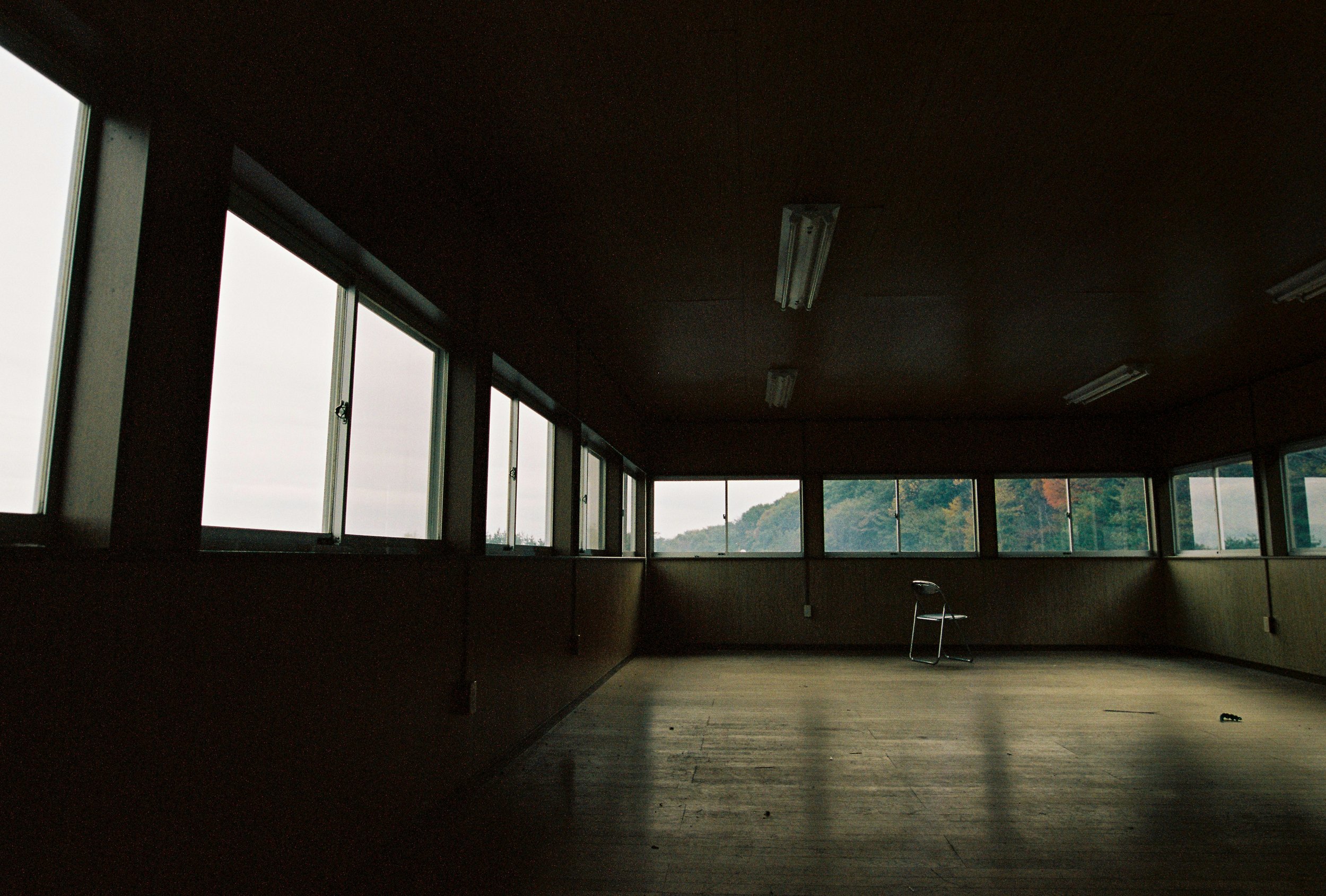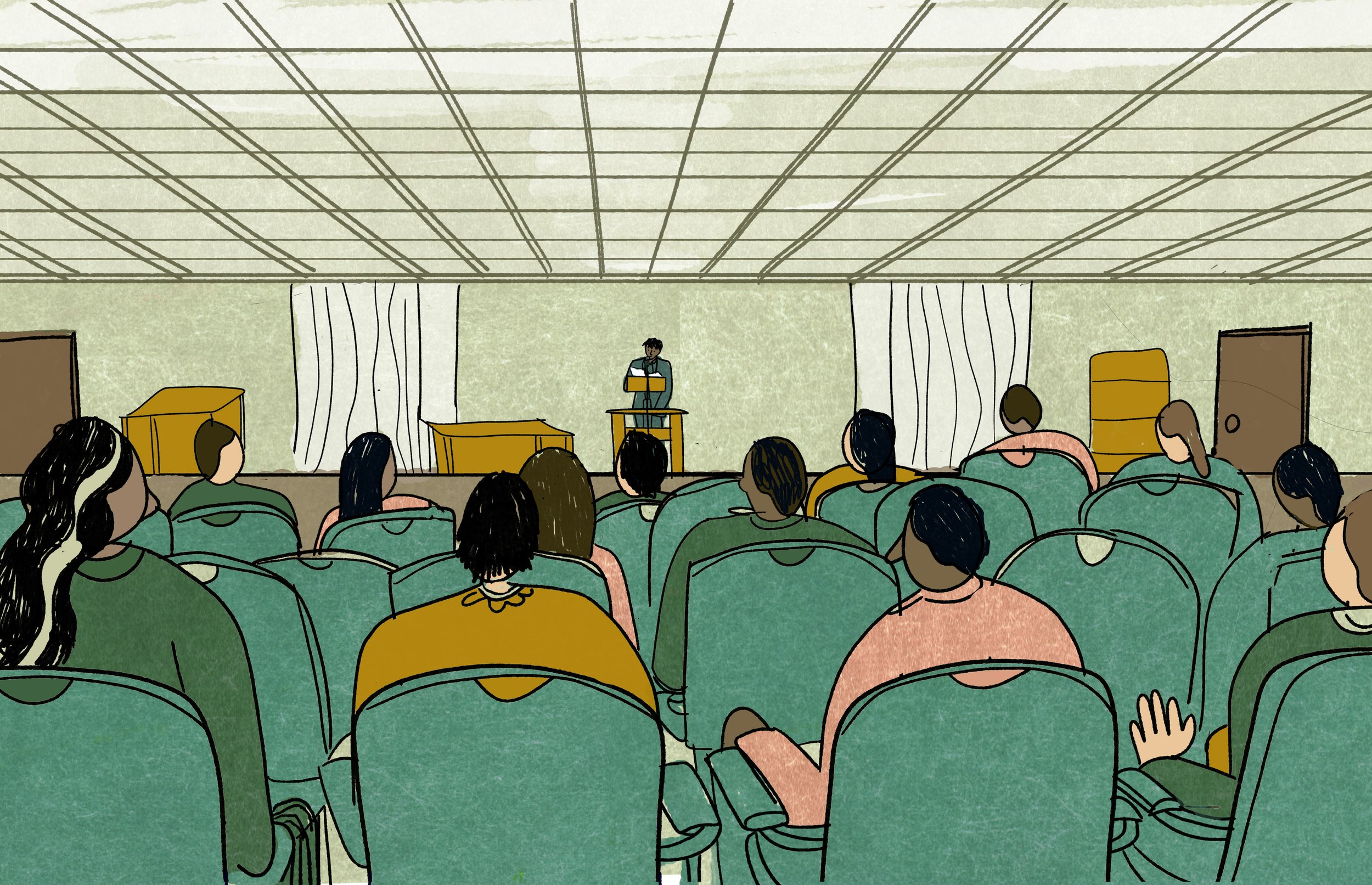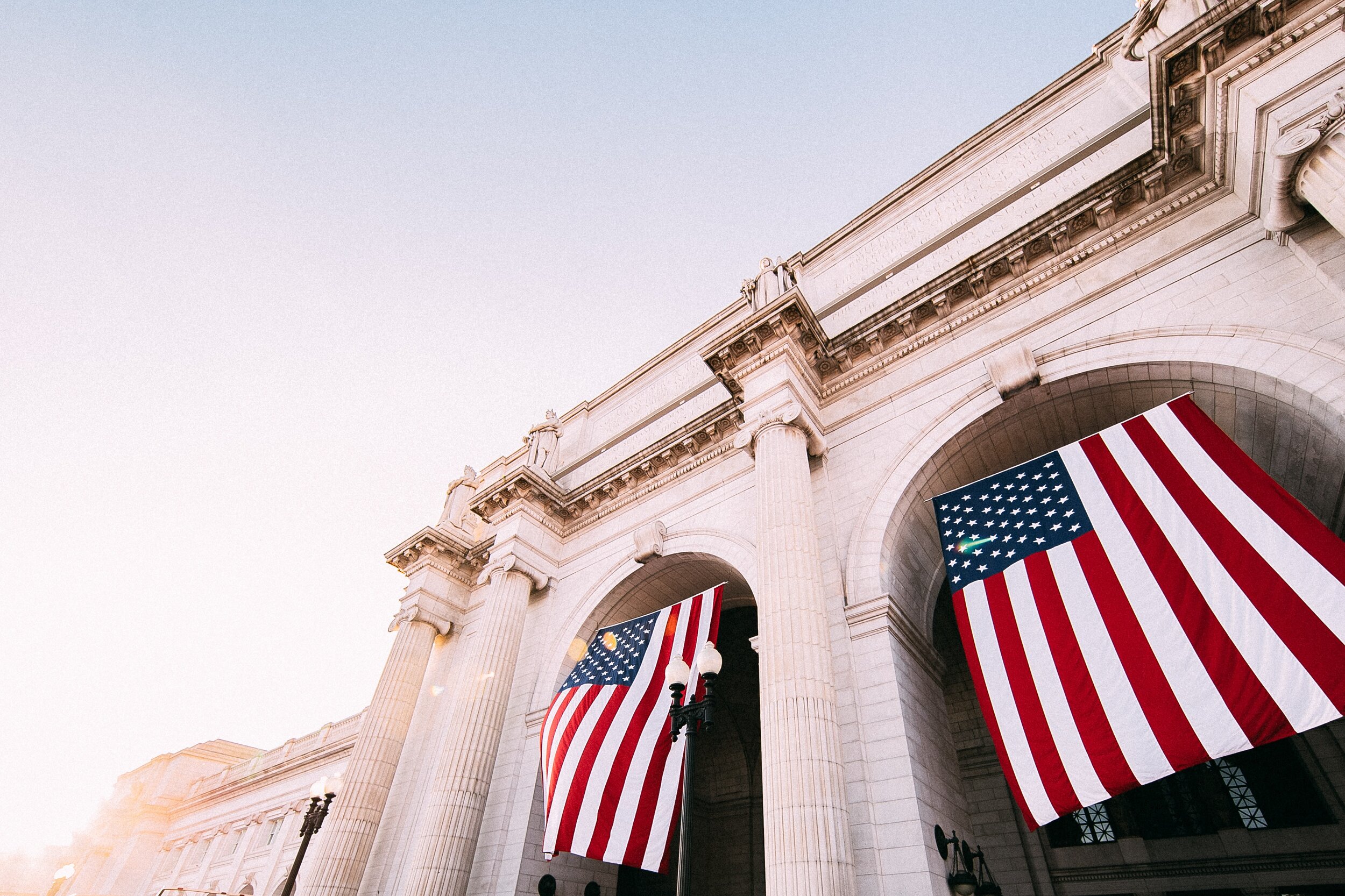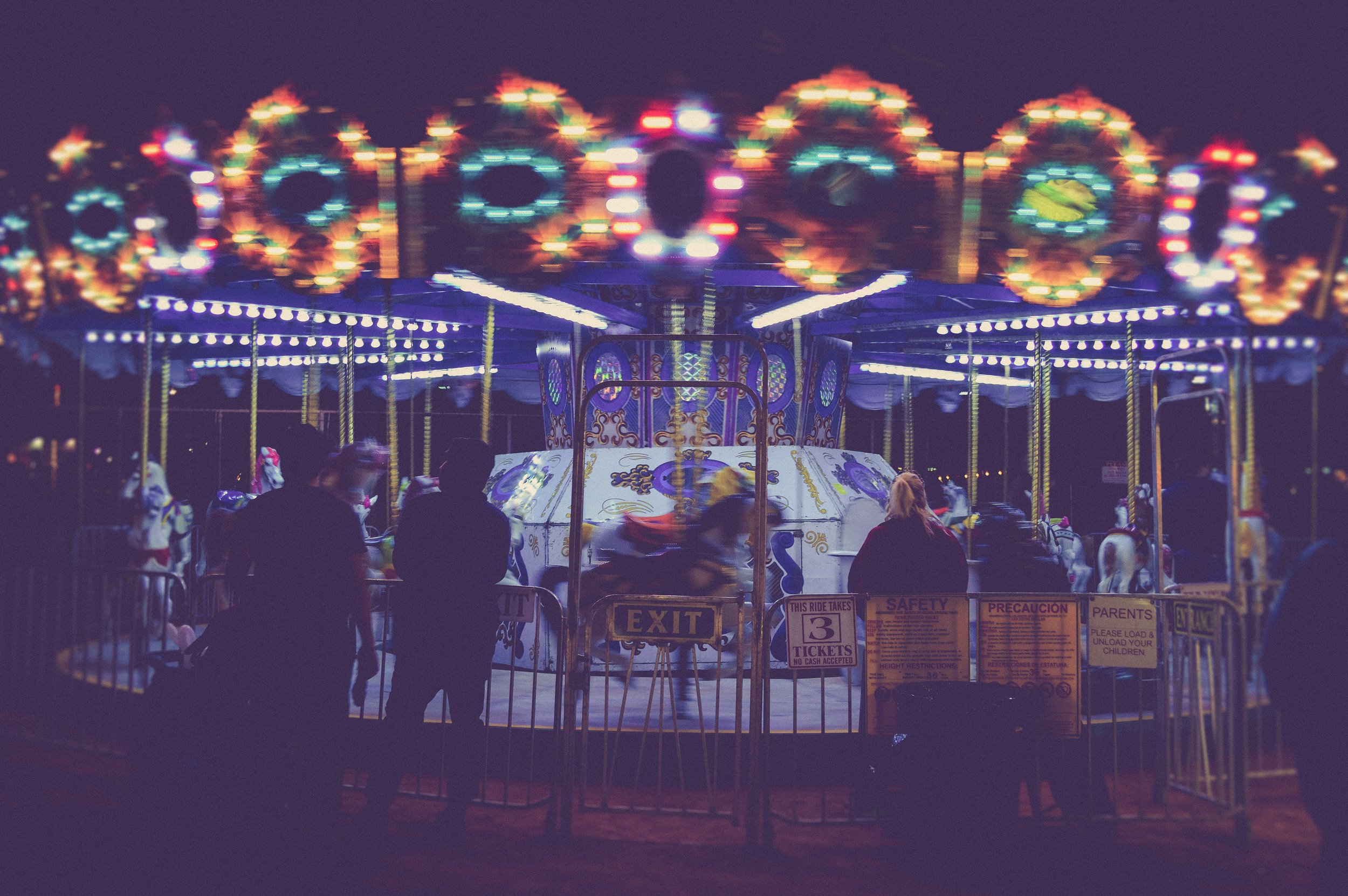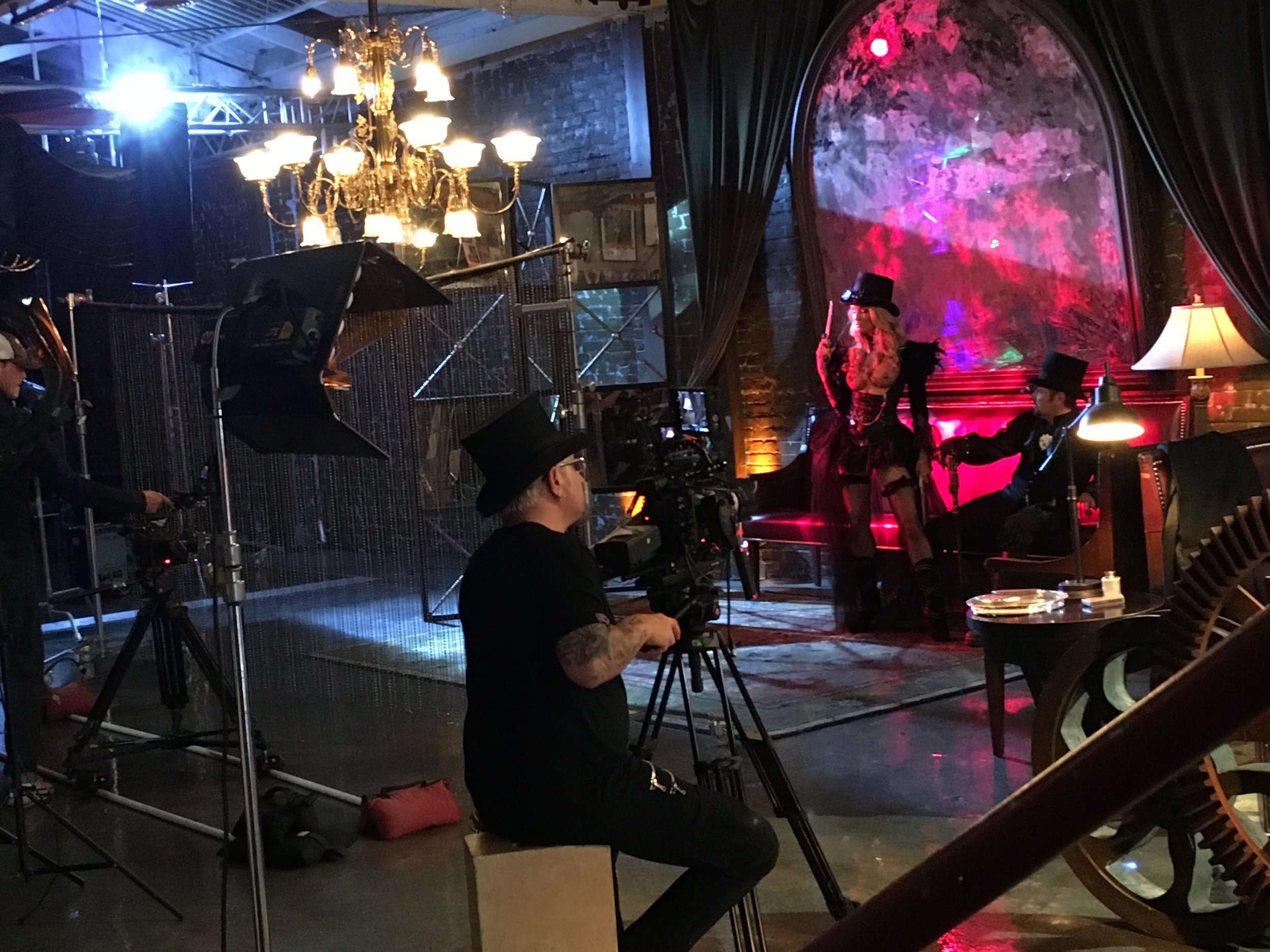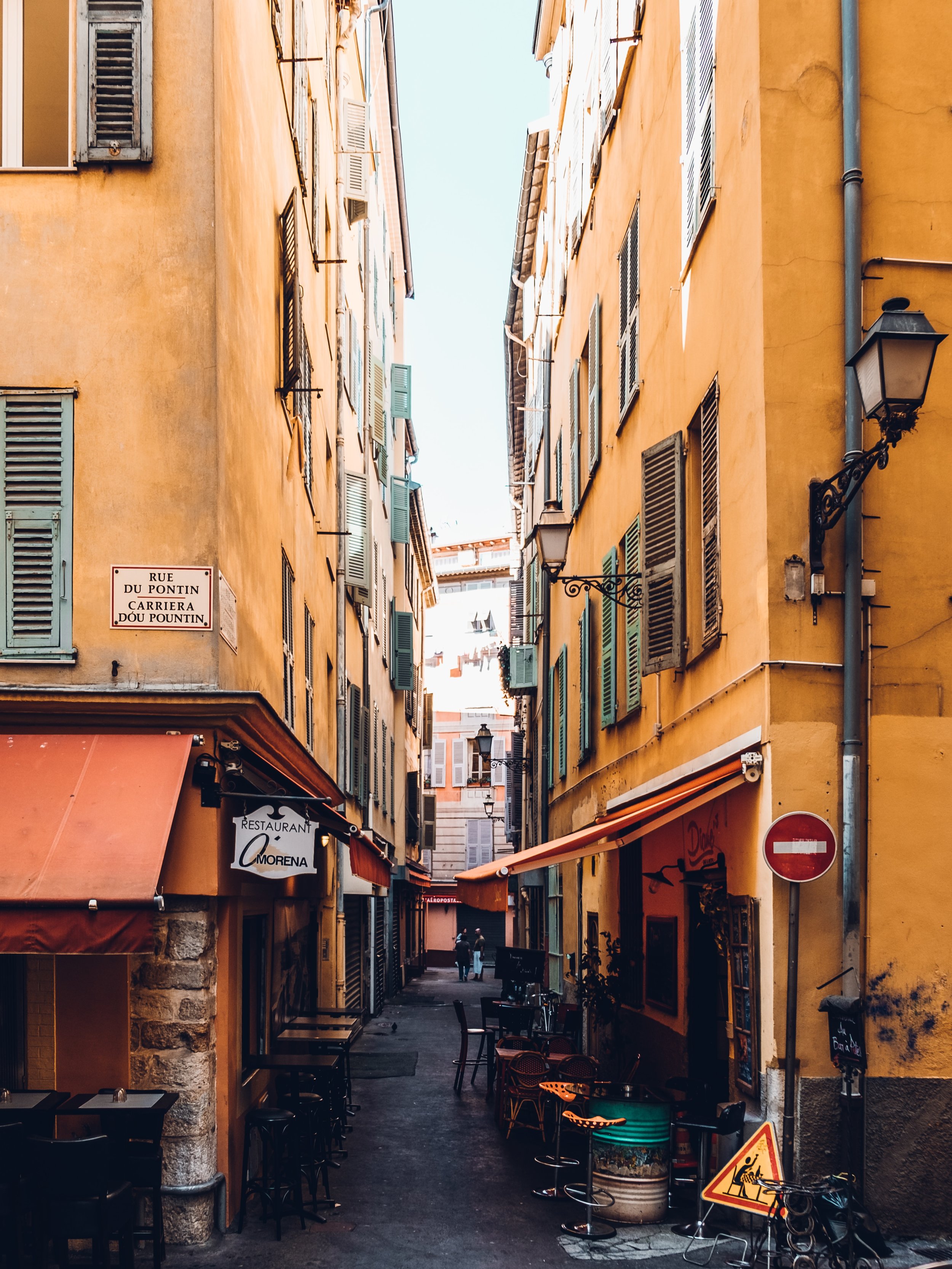About Portobello Road
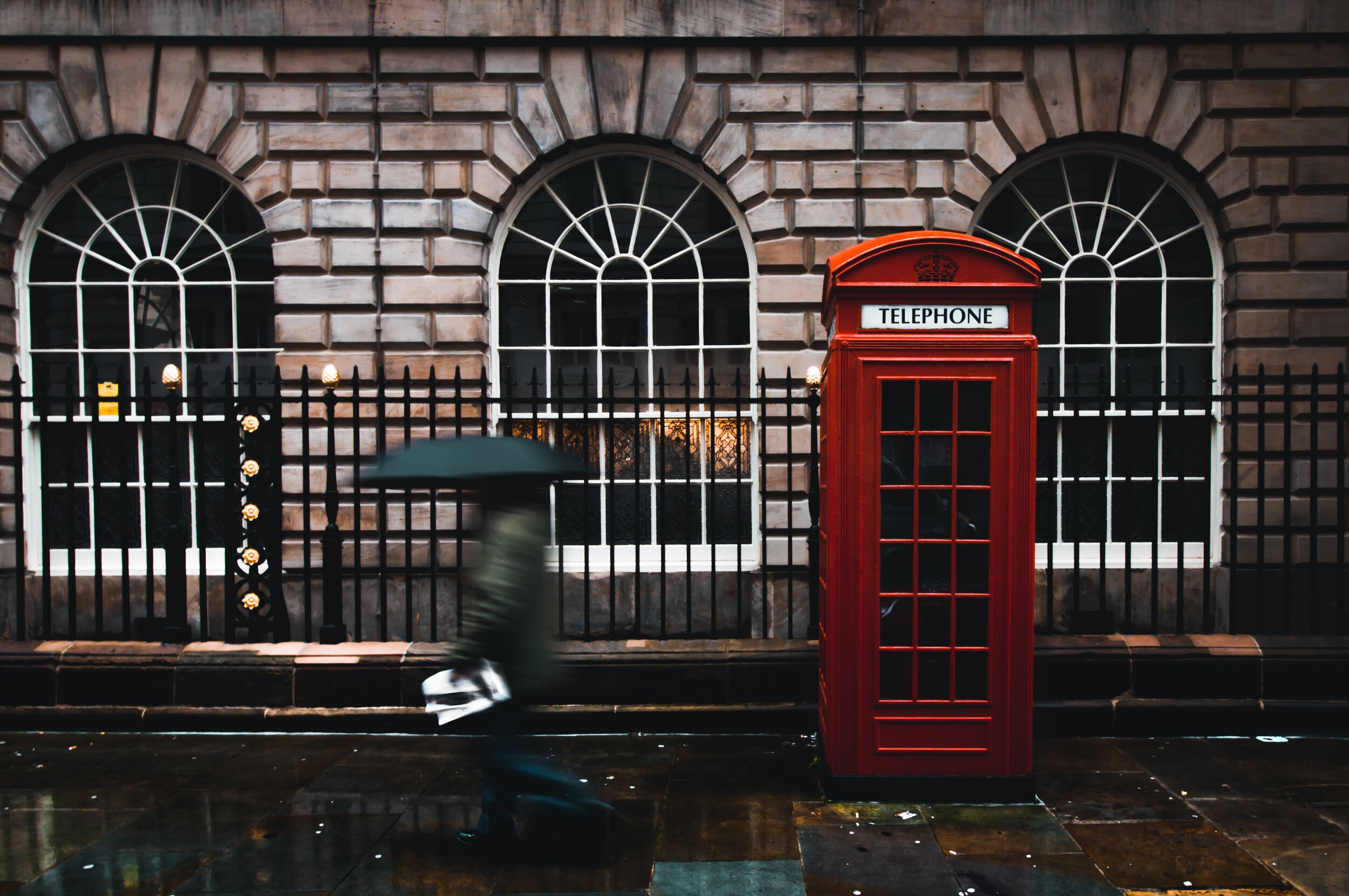
When Chaya Bhuvaneswar was a young medical resident studying psychiatry in London, she often felt lost someplace between her dedication to her future profession and her deep desire to write fiction. With the publication of her debut collection of short stories, White Dancing Elephants, OA asked her to think back on the book’s origins. In response, she wrote this essay about a time when her sense of academic drudgery was suddenly lightened by a walk down London’s Portobello Road, where her encounters with art, aerobics, antiques, and one mother’s face, eventually gave birth to White Dancing Elephants.
It wouldn’t be precisely true to say the title story of my collection, White Dancing Elephants, started with a miscarriage that happened a week after a horrid flight to England, during which I carried my two-year-old baby in one arm and heavy luggage in another, because we weren’t allowed to roll the stroller onto the airplane or through customs, because there were weird rules that I with my brown face and mistrusted name didn’t dare resist.
The story really started in London, ten years before, where as a resident training to be a psychiatrist I got permission to spend a few days presenting research about runaways at University College. An honor that felt leaden, meaningless, from where I was bunking in a cheerless Notting Hill flat. Ashamed of the twenty pounds that separated me from my younger self, who inhabited Oxford years before as an intrepid, sleek Rhodes Scholar, I retreated to my room to disarrayed notes and an old laptop on a creaky bed in a musty and unfamiliar place that made me long for home.
I’d rented the room from a gay British man who’d suckered me over the Internet into believing he would be a kind landlord. In person, smoothing back movie star hair, hands hooked in the jeans he wore over a rangy, strong body, he took one look at me and said, “You look so different to your photo,” making me jealous not only of his snark, but his grammar. He looked like he used moisturizer regularly and slept for ten hours every night. Only his poor housekeeping kept me from wanting to be like him in sophistication, in élan.
I was a medical intern, a first-year resident, getting to know the hospital. I felt alone, even among scores of other interns sharing this same ritual, because no one I’d met in the training was intellectually curious, at least not to the extent that they’d reveal this quality in their everyday work lives. Instead, they were savvy in the ways of neatly getting through, a mindset that would take me years to adopt seamlessly. A kind of mental surrender in the interest of functioning smoothly and without questions. Books and facts were to be engaged with instrumentally. Every day work required so much effort, so much concentrated thinking, that being unthinking was celebrated.
“I’d gone from bookworm to pretty during my first year of college, stayed true to the diaphanously-dressed “Indian girl” image so well that one of my classmates, a tactless Russian, said, ‘it surprised people, how smart I could be sometimes.’”
But after my required work was finished I wanted to think. I wanted – needed – to keep my mind. Keep it free, keep it dreaming, keep it focused, just keep it, versus trading it for good to the medical machine. Keep my own mind for what, I wasn’t completely sure – the memory of when I had believed I would publish literature, now painful, sitting here in this dismal room in London. The kind of dreadful place that one might have expected to find me in, coming from a modest upbringing. I thought I had escaped those choking years.
I’d been stifled, there was no getting around it, growing up and out in the town of Flushing, a part of Queens famous from The Great Gatsby precisely for its industrial and abiding dreariness. I’d done my best to chisel out dreams that were sharp enough to cut out new realities. I’d gone from bookworm to pretty during my first year of college, stayed true to the diaphanously-dressed “Indian girl” image so well that one of my classmates, a tactless Russian, said, “it surprised people, how smart I could be sometimes.”
In the room in London I felt that airlessness again. The tediousness of medical training, exhilarating as it could be at times, was inescapable. Nothing could change the amount of work it took to responsibly care for a person, to know the meaningful details of one person’s story, and like Dr. Osler, considered the father of modern medicine, said famously, medicine is the “science of individuals.” There were exams to worry about, a necessary drudgery, and here I was sitting on a lumpy bed again, wearing something unattractive again, eating, reading, the way I had throughout my adolescence. I was nearly twenty pounds overweight, with no childbearing excuse yet, though I did want children.
The day before my research presentation, I found myself writing a question in my journal: “Am I destroying my own life with useless ambitions” (a question I would forget till years later when I forgave myself for being young and not knowing how the future would turn out.) The hip, British, house renter poked his head into my room, assessed my sad presentation, asked softly, “Hey, are you alright?”
Over tea (but no cookies!) I was starting to feel better so I let myself weep. Suddenly, I’m hungry for oxygen. I get myself together, put on make-up, remember that I’m in my late twenties. Not old. Yet I feel old, and with the extra pounds, more than one shop-girl teenager has called me “madam.”
Alone, still pondering the genuinely-curious question asked by the landlord – “You don’t know anyone? Anyone at all?” but goaded, at last, by his amused look of pity – I walk down Portobello Road, past the bright blue, red, and yellow facades of buildings that I have no desire to enter, past glossy, small boutiques filled with narrow-hipped women. I have no business inside those places either. I’m wearing clean scrubs, clogs. A foreigner. Refugee from a hospital, wanting to preserve my other life, the person I was before the sacrifices of this long training. I walk indecisively, stopping only here and there at a fruit stall, then at a gallery, including one that reminds me of a page in an art magazine, a vibrant prediction of how Aboriginal art would soon be recognized as cultural wellspring, even in 2004 in the UK.
“I am hiding in these scrubs, wearing these clogs, concealing and thereby saving the person, the writer, I was before med school and residency – the person I could be again, once I’ve completed this training and settled into a practice.”
This gallery of Aboriginal art, here, now, London, Portobello Road. It gladdens me. Only one piece, a knockoff by a ‘60s popular artist I’ve never heard of, looks like a smart bit of appropriation, the reworking of an ancient animal – line going from its mouth to its internal organs, then to tail, dots like starry, fierce reminders of mortality. Aboriginal depictions of tadpoles as a finite stage – one moment in development designed to end, and soon. But what do the dots mean? I stand there at the gallery window, balancing on my worn-out, ugly clogs – hard shoes that I would never have worn before I sealed myself into this life. The dots, according to a plaque, are meant to obscure and sanctify. Hide the meanings of each painting from all eyes except those they are meant for.
I am hiding like this, I realize, with unexpected joy. I am hiding in these scrubs, wearing these clogs, concealing and thereby saving the person, the writer, I was before med school and residency – the person I could be again, once I’ve completed this training and settled into a practice. In the window of the gallery, which, I notice suddenly, is near a nondescript storefront that bears an ad for an aerobics class – I see myself. My cheekbones, still intact. My eyes, my hair. I am not lost, not melted yet. Invisible dots plus sand and dust from all these toiling years – they obscure me temporarily.
There’s a cheap sneaker stall on Portobello. I buy a neon pair, find my way to the front of a tough aerobics class, decide to buck up and get back in shape. The instructor is a young biracial woman, a mother from Nigeria, she says, loud over music nearly as loud (Sade, a “cool older sister”). This woman is wonderful and watches over me, asking, solicitous, seeing me huff and puff, if “this class is too much,” and “if I’m alright.” That feeling of being determined to outdo her, to be running half marathons again (which I do when I return to the US, training, morose but steely, by running in loops around public parks) – the feeling stays with me, along with sentimental gratitude at being cared for, being seen. Slipping my clogs back on, toweling off after the class and a quick shower, I linger on the image posted on the locker room wall of this woman with a young child (she has three though she isn’t yet thirty, she’d explained, in the long monologue that accompanied slightly-cheesy sitar music during the cool down portion of the class.)
I walk through Notting Hill along the length of Portobello Road, proud in my scrubs because of the physical work they represent, as physical as the exercise class I have just completed. Scrubs worn with a fresh T-shirt from the aerobics studio (a purchase that wipes out the rest of the British pounds in my pocket). The next morning, I’ll be in a suit and a dark conference room, showing slides of my research into runaways, fielding hard questions from a clever and well-prepared academic audience. The physiology of traumatic memories – language broken, the past obscured, and me in training now to be a psychiatrist, to help coax out others’ darkness into warm light.
But now, mid-morning here in west London, I’m not in training to be anything. The physical training I just did reminds my body of who I am. In my mind are blooming seeds of me scattered throughout Portobello, like literal mushrooms attractive and a little dangerous: the Aboriginal drawings become models for the artist, Jayanti, in my story “Orange Popsicles.” And the antiques I notice through the brilliant British light on glass – they’re objects coveted by doomed Sylvia, a character in my story, “A Shaker Chair.” The biracial instructor’s face, with its sheen of sweat across brown optimistic planes, becomes the face of the young mother the narrator sees when she’s walking through London in the rain in the title story, “White Dancing Elephants.”
“White Dancing Elephants,” the first story I wrote in this collection, emerged in a single afternoon based on a European business trip years later as a full fledged doctor, months after my miscarriage, sitting in a hotel lobby much like the one described in the story, in a place more expensive and clean than the unappealing room I’d rented during my intern year.
I know some of this then, not all of it. But I do know (and, over a quick drink of water from his kitchen sink that tastes foul), I tell my well-put together, decent bloke of a landlord I will be free again, to be myself, to write from intuitions and impressions that have always been mine, versus the person I was training to be. I know this simply from walking freely for just a few hours in London, but I could’ve been in any city, anywhere. Walking, I know this from the memory of who I was, before med school. The ghost of who I wanted to be. Light and nimble, but not hungry. Sated by writing dreams.
ABOUT THE AUTHOR
Chaya Bhuvaneswar is a practicing physician and writer whose work has appeared or is forthcoming in Narrative Magazine, The Awl, Tin House, Michigan Quarterly Review, Notre Dame Review, story South, aaduna, r.k.v.r.y. and elsewhere. She has received a Henfield writing award, a Rhodes scholarship, and is a frequent public speaker on social justice as well as trauma and recovery. Her debut short story collection, White Dancing Elephants, was selected as the winner of Dzanc Books' 2017 Short Story Collection Prize. Find her on Twitter: @chayab77.
Header image by Jack Finnigan


